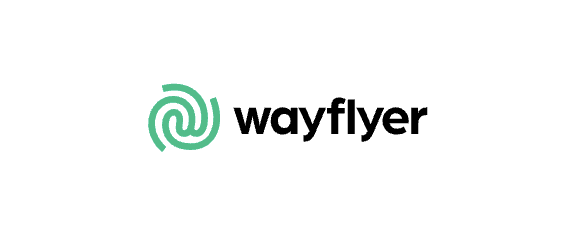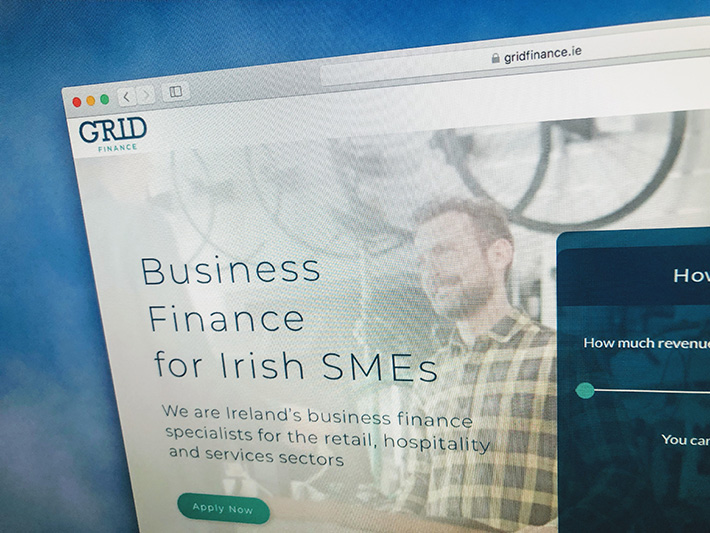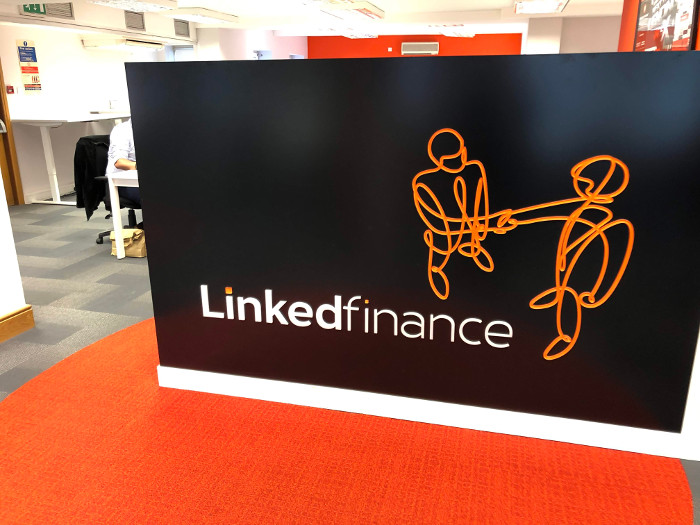 |  |  |
Related Headlines
| 09/06/2022 | Clearco shutting down Irish operations |
| 05/12/2022 | Irish MCA co raises $300M from JPM |
| 01/28/2022 | Ex-Irish govt Sec Gen joins Grid Finance |
| 11/02/2021 | Irish govt is funding fintech |
| 06/12/2019 | Irish SMB lender surpasses €10m funded |
Related Videos
Sean Patrick Searches for a Pot of Gold | deBanked Does Dublin, Ireland |
St. Patrick's Day Raffle | |
Stories
Clearco to Invest €100 Million into Digital-First Irish Businesses
April 6, 2022 Clearco, the world’s self-proclaimed largest e-commerce investor that provides revenue-based financing capital solutions to e-commerce businesses, is making yet another move. Directed by CEO Michele Romanow, a star in the hit TV show “Dragon’s Den,” Clearco recently announced that it will be introducing its product to Irish founders and entrepreneurs. Upon continuation to support the 15+ % growth predicted in the Irish economy in 2022, the company plans to put €100 million into digital-first Irish businesses.
Clearco, the world’s self-proclaimed largest e-commerce investor that provides revenue-based financing capital solutions to e-commerce businesses, is making yet another move. Directed by CEO Michele Romanow, a star in the hit TV show “Dragon’s Den,” Clearco recently announced that it will be introducing its product to Irish founders and entrepreneurs. Upon continuation to support the 15+ % growth predicted in the Irish economy in 2022, the company plans to put €100 million into digital-first Irish businesses.
An international sales and business development hub has been developed in Dublin. The Clearco team currently consists of 75 members with a plan of adding 125 employees in the future. This will support Clearco’s plan to grow in Europe, North America and Asia Pacific in 2022.
This year Clearco plans to expand its products and services within current European operations and into new key markets across the continent. This includes Western Europe, Central Europe and the Nordic region.
 Clearco has invested over $3.2 billion globally into 7,000+ businesses across three continents. Ireland is the fourth international market for Clearco. To be able to serve as many founders as possible internationally, the creation and development of its sales and development team is key.
Clearco has invested over $3.2 billion globally into 7,000+ businesses across three continents. Ireland is the fourth international market for Clearco. To be able to serve as many founders as possible internationally, the creation and development of its sales and development team is key.
Romanow stated “Clearco is excited to bring our revenue-based funding model to Irish founders. Ireland has one of Europe’s strongest economies and a dynamic start-up sector. We are confident that we will have a meaningful impact on the Irish e-commerce economy. Clearco is excited to establish this International Sales hub in Ireland to support our growth in the EMEA region. We’re impressed by the talent and tech skills here and I look forward to building the team to serve our growing customer base.”
Businesses in all 50 states have been funded by Clearco within the US market. However, over half of the company’s funding goes to businesses outside of California, New York, Illinois and Massachusetts, which received about 70%. Clearco believes the same trends will be seen in the Irish marketplace as they hope to help fund traditionally underserved communities.
Irish Lending is Making a Comeback Despite ILCU’s Request for Less Regulation
March 22, 2022 In what some have called the financial services capital of Europe, Ireland’s financial sector has been making a serious comeback since its pandemic-induced slumps. Despite a recent release from the Central Bank of Ireland (CBI) saying that small business lending was making a serious comeback, credit unions throughout the country are pleading with regulators to remove “handcuffs” and allow them to fund their local merchants.
In what some have called the financial services capital of Europe, Ireland’s financial sector has been making a serious comeback since its pandemic-induced slumps. Despite a recent release from the Central Bank of Ireland (CBI) saying that small business lending was making a serious comeback, credit unions throughout the country are pleading with regulators to remove “handcuffs” and allow them to fund their local merchants.
Current regulations enforced by the CBI limit both mortgage and small business lending to banks at 7.5% of the credit union’s total assets.
The Irish League of Credit Unions (ILCU) has said that credit unions are prevented from expanding into the mortgage market because of restrictive lending limits. While the effort comes across as a desire for credit unions to have more flexibility in mortgage options, small business lending has been tied into the deal and thus a part of the movement to get these regulations lifted.
According to the CBI’s data, net lending to small business owners in Ireland was €91m in the fourth quarter, reversing consecutive decreases from the previous two quarters. Estimated repayments by Irish SMEs were the lowest on record over the year as well, to the tune of €4.2 b.
As the data portrays, Irish lending is chugging its way back to normalcy. While the CBI appears to believe that the current system in place is working just fine, the credit unions are making a case that they can help speed up the Irish economy’s recovery process by being able to get a slice of the lending pie.
The ILCU recently responded to remarks made by minister of State Sean Fleming, who when speaking on credit union involvement in lending, encouraged their participation. “Credit unions should fill the gap left by the departures of Ulster Bank and KBC from the Irish market and start lending more mortgages.”
Fleming also included a claim that credit unions are “not doing enough of lending” in his remarks.
In response, ILCU deputy chief executive David Malone cited these regulations that the group has been fighting against as the cause for Fleming’s accusation.
“In order for credit unions to become community banks, and to really engage in the mortgage market, the ILCU is asking Minister Fleming to address the imbalance caused by the restrictive regulatory lending regime in his soon-to-be-published review of the policy framework within which credit unions operate,” said Malone.
Ireland has notably made some big moves in regards to supporting, financing, and government investing of fintech companies from both Ireland and abroad. As the country continues to come out of the financial hardships of the pandemic while also working in the contemporary European financial ecosystem, the CBI doesn’t appear to be lifting any regulation anytime soon, as long as lending numbers keep creeping back to normal.
Irish E-commerce Revenue-Based Funder Raises $76 Million Series A After First Year
May 27, 2021 An Irish revenue-based e-commerce financing platform called Wayflyer raised $76 million in a funding Series A round this past week. It has been a roaring first year for the small fintech, so far funding $150 million to online merchants. The firm just launched its cash advance product 14 months ago and raised $10.2M in a seed round only six months ago.
An Irish revenue-based e-commerce financing platform called Wayflyer raised $76 million in a funding Series A round this past week. It has been a roaring first year for the small fintech, so far funding $150 million to online merchants. The firm just launched its cash advance product 14 months ago and raised $10.2M in a seed round only six months ago.
Wayflyer offers e-commerce sales-based funding, without the need for collateral, from $10k up to $20M. They partner with firms across the UK, including a recent deal with the international athleisure brand Gym+Coffee.
Left Lane Capital led the round with investments from DST Global, QED Investors, Speedinvest, and Zinal Growth. The successful funding comes after the firm widened its credit facility by $100M to keep up with the demand for capital and a partnership announcement with Adobe Commerce.
The cofounders, Aidan Corbett and Jack Pierse came together in 2019. Back then, Corbett led an online marketing analytics firm called Conjura when Pierse, a former venture capitalist, proposed using analytic tech to underwrite what amounts to digital MCAs.
“Jack came to me and said, ‘You should stop using our marketing analytics engine to do these big enterprise SaaS solutions, and instead use them to underwrite e-commerce businesses for short-term finance,'” Corbett told Tech Crunch. “We just had our heads down and started repurposing the platform for it to be an underwriting platform.”
Launching in April 2020, Wayflyer funded $600,000 in the first month. In March of 2021 alone, the firm did about $36 million in advances.
“So, it’s been a pretty aggressive kind of growth,” Corbett said.
How GRID Finance’s Cash Advances Are Building Stronger Irish Communities
December 27, 2019
Five years ago, a small company in Dublin put Ireland’s fintech scene on the map by advising local SMEs to “get on the GRID.” GRID Finance, founded by Derek F Butler, introduced a peer-to-peer lending model to Irish businesses at a time when the industry was just beginning to form. From the beginning, the company’s secret sauce was the GRID Score, a proprietary credit score system that enabled the company to take on the difficult task of assessing the risk of SMEs.
Butler, who I sat down with in September at the company’s headquarters alongside Chief Marketing Officer Andrea Linehan, says the GRID Score is an SME’s “passport to the economy.”
It’s the upper tier that GRID caters to while providing a unique product within Ireland known as a cash advance. The setup is similar to Square and PayPal in the US in that the loans are repaid via a percentage of an SME’s credit/debit card transactions on a daily basis. The term of the loan is fixed and the costs are reasonable.
“The reality is that small business funding and financing is a high risk,” Linehan says.
“There’s no subprime market here,” Butler adds. “We’re trying to build a prime cash advance market versus a subprime one in the US.”
 Like GRID’s competitors in the industry, Linehan believes that finance in Ireland will transition online. “Ireland is still dominated by two banks,” she says, referring to Bank of Ireland and AIB. The company, therefore, believes it has a good head start on the impending shift. But in the meantime, they’ve learned how important it is to be embedded in the local communities. To that end, GRID has an office in Limerick, Ireland’s third largest city with 95,000 people that’s located about 200km away from its headquarters in Silicon Docks.
Like GRID’s competitors in the industry, Linehan believes that finance in Ireland will transition online. “Ireland is still dominated by two banks,” she says, referring to Bank of Ireland and AIB. The company, therefore, believes it has a good head start on the impending shift. But in the meantime, they’ve learned how important it is to be embedded in the local communities. To that end, GRID has an office in Limerick, Ireland’s third largest city with 95,000 people that’s located about 200km away from its headquarters in Silicon Docks.
And their mission goes beyond providing funds. “If we can help get [SMEs] ready by giving them the tips to improve their financial health right now, let’s try and do that,” Butler says. “We want them to understand their financial health versus their cost of capital.”
While the company has sustained modest growth, Business Post reported earlier this month that GRID plans to raise €100 million in 2020 to provide even more loans through its platform.
Butler likens GRID’s mission to the MetLife Foundation, promoting financial health and building stronger communities. “We do a lot of work with the MetLife foundation because of the impact they have,” he says. “It’s why I launched GRID Finance.”
The Broker: Funding Businesses The Irish Way
October 10, 2019 I’m sitting in the lobby of The Marker Hotel, a 5-star 7-story property on the edge of Dublin’s Grand Canal Dock. Here in Ireland’s major tech hub, I’m waiting for a self-identified corporate finance broker by the name of Rupert Hogan, the managing director of BusinessLoans.ie. Outside of our email exchanges, I don’t really know what to expect. I’ve met brokers from the US, Canada, Mexico, UK, and Hong Kong, but never Ireland.
I’m sitting in the lobby of The Marker Hotel, a 5-star 7-story property on the edge of Dublin’s Grand Canal Dock. Here in Ireland’s major tech hub, I’m waiting for a self-identified corporate finance broker by the name of Rupert Hogan, the managing director of BusinessLoans.ie. Outside of our email exchanges, I don’t really know what to expect. I’ve met brokers from the US, Canada, Mexico, UK, and Hong Kong, but never Ireland.
When he arrives, he doesn’t disappoint. Hogan is full of energy and enthusiasm. He has a natural charisma and friendly manner that’s well-suited for a relationship-based business. It just so happens that SME finance in Ireland is still heavily reliant on person-to-person contact and Hogan is at the forefront of helping potential borrowers look beyond the bank for their financing needs.
SMEs are looking for speed and ease in the loan process, Hogan says. Historically, business owners would call on their bank for financing, invoking the sanctity and reliability of decades-old personal relationships, but Hogan explains that relationships between SMEs and banks just aren’t what they used to be. “[SMEs] feel like they’re going to get the runaround,” he says.
 That’s where he comes in. And it could be any kind of business, he explains. Hogan jumps from a call with an import/export business to one in retail, followed by one with an agricultural equipment company. He has to understand a bit about them all no matter what it is, to figure out a proper financial solution. BusinessLoans.ie doesn’t charge for their service but they do receive a commission from the financial company if a deal closes.
That’s where he comes in. And it could be any kind of business, he explains. Hogan jumps from a call with an import/export business to one in retail, followed by one with an agricultural equipment company. He has to understand a bit about them all no matter what it is, to figure out a proper financial solution. BusinessLoans.ie doesn’t charge for their service but they do receive a commission from the financial company if a deal closes.
“Corporate” finance may evoke images of big city corporations engaged in international commerce but Hogan’s company can connect SMEs with as little as €5,000 through an unsecured business loan or merchant cash advance. Invoice Financing, leasing, and trade finance are also tools at his disposal. It’s not all small, however, as he hands me a rate sheet for one lender that will go up to €25M. Interest rates on these products when compared with their American and UK brethren are quite reasonable, and suggest also that the target clientele is not subprime.
As we sit there drinking coffee, Americano style in my honor, an executive for a local SME lender happens to spot him while passing by. After they exchange pleasantries, Hogan explains to me that he submits deals to that lender through their online broker portal. And so I ask him if doing everything online has become the standard in Ireland.
“It’s getting there,” he says, while acknowledging there’s still a ways to go with the population that’s conditioned to handling their financial dealings offline. The company’s domain name is perhaps perfectly positioned to capture that transitioning audience. When businesses decide to look for a loan online, he explains, “I hope they go to BusinessLoans.ie”
How Linked Finance is Linking Irish SMEs With Quick Loans
October 1, 2019 Google Maps was convinced that I was already at my destination, but that didn’t make sense because I was still sitting in my cramped Airbnb rental apartment in Dublin and hadn’t left to go anywhere yet. “Oh man please tell me Google works in Ireland,” I said to myself while glancing at the time and counting how many minutes I’d be late to my first meeting.
Google Maps was convinced that I was already at my destination, but that didn’t make sense because I was still sitting in my cramped Airbnb rental apartment in Dublin and hadn’t left to go anywhere yet. “Oh man please tell me Google works in Ireland,” I said to myself while glancing at the time and counting how many minutes I’d be late to my first meeting.
I was on my way to Linked Finance, a peer-to-peer SME lender based in Dublin. Their office was uncannily close to where I was staying on Liffey Street Lower, just steps away from the Ha’penny Bridge. So close in fact, that Google Maps believed that I was going to and from the same location. I breathed a sigh of relief at the realization and ventured the short distance to the elevator that promised to deliver me to the inner universe of Irish fintech.
 Alan Fagan, the company’s head of marketing, greeted me at the door. Fagan joined the company in 2015, two years after its founding. As we walk in, I notice the prominent display of the Linked Finance logo amid an ocean of eye-popping orange. The look, the feel, suddenly I feel transported to the tech scene in San Francisco. The accents overheard in the background, however, suggest I am most definitely in Ireland.
Alan Fagan, the company’s head of marketing, greeted me at the door. Fagan joined the company in 2015, two years after its founding. As we walk in, I notice the prominent display of the Linked Finance logo amid an ocean of eye-popping orange. The look, the feel, suddenly I feel transported to the tech scene in San Francisco. The accents overheard in the background, however, suggest I am most definitely in Ireland.
We sit down. Tea is offered. I decline. Fagan gets right into it and he sings a familiar song, that it can take a very long time for a business to get a bank loan.
It can take up 8 weeks to get funded, he says. “SMEs are the biggest employer in the country,” he explains, while hinting that facilitating loans to this demographic is as much a patriotic endeavor as it is a business one.
The nation’s Central Statistics Office puts the number of active enterprises in the private business economy at over 250,000. As of June, Linked Finance had made more than 2,100 loans for a grand total of more than €100 million.
Fagan gives me a demonstration of the platform, where individual investors (or peers) can see the name and location of the businesses whose loans are available to fund. An investor can even sort the listings by county, of which there are 26 in the Republic. Linked Finance does the underwriting, something they can do within 1 day, Fagan says.

The underwriting is tight. “We’re not a lender of last resort,” Fagan explains. They put themselves on the same (or better) credit risk footing as banks and claim that they’re able to assess risk and provide funds in a much more efficient manner. “We feel we do it better than banks,” Fagan says.
Most loans close quickly, thanks in part to their Autobid tool. Investors can be from anywhere so long as they’re over 18 and have a European Union bank account. Annual interest rates on the loans range from 6% to 17.5%.
Fagan says that although they are an online lender, many borrowers in Ireland still appreciate personal relationships. They can accommodate applicants that prefer a personal walk-through by a real person and that it can actually leave a memorable impression on their customers.
Marketing is done via a variety of direct methods but also through channel partners like accountants and financial advisors. A big name asset manager, Paris-based Eiffel Investment Group, with €1.5B under management, is among the loan investors on the Linked Finance platform.

I keep waiting for the caveat, an obstacle or twist in the model so inherently Irish, that somebody like me from half a world away would never truly grasp. But there isn’t one. The market is overtly familiar, yet more reminiscent of the UK than the States. Ireland lacks the robust regulatory framework of both countries, however. Despite that, the government does not appear to be holding the industry back. In June, Paschal Donohoe, the Minister for Finance, the government official responsible for all financial and monetary matters of the state, said “availability of credit is a key consideration for all businesses, and I am aware of the role peer to peer lending is playing in broadening competition in the SME finance market.”
Indeed, such competition has made credit more available in markets abroad.
As our time together winds down, I mindlessly attempt to plot my trip back. “Siri, take me home,” I speak into my phone. The Maps app opens and then loads to reveal a double entendre. It seems I am already very much there.
Ireland is Funding Fintech Through Government Investment
November 2, 2021 The Irish government has taken a serious liking to fintech. With a broad history of being active in financial services, the nation believes they can attract companies from around the world to reap the benefits of employing Irish citizens, while also tapping a major source of export revenue through an up-and-coming industry.
The Irish government has taken a serious liking to fintech. With a broad history of being active in financial services, the nation believes they can attract companies from around the world to reap the benefits of employing Irish citizens, while also tapping a major source of export revenue through an up-and-coming industry.
With access to capital for small businesses just as difficult here as it is in the US, a new fintech company looking for start-up cash may be able to turn to Dublin to get a major investment, rather than dealing with a retail investor or a venture capital firm here in the states. Enterprise Ireland, the organzation that runs these programs, is trying to tempt fintech companies looking for a fresh start or an international expansion to start that process in Ireland.
“Enterprise Ireland is the trade development and venture capital arm of the Irish Government,” said Claire Verville, Senior Vice President of Fintech and Financial Services at Enterprise Ireland. “We are a semi state agency and our mandate is to help support indigenous Irish enterprise to grow and expand in global markets.”
Just like in the United States, it is extremely difficult for an Irish business to walk into a big bank and get a loan. It’s in these situations where the Irish government has decided to make a direct investment themselves. Through Enterprise Ireland, according to Verville, the Irish government can provide capital to startups across a range of areas, in exchange for things like loan repayment or government equity in the company.
“In addition to the kind of more traditional trade development stuff that you would see from any government promoting their indigenous businesses abroad, we do invest directly in companies through equity and participate directly as a [limited partner] in funds to funds.”
Verville spoke about how the Irish government has been looking to extend funding to fintech startups for some time. “Our fintech portfolio is over 200 companies now, we have been one of the most active investors in Europe in a long time. We are one of the most active global investors across all sectors, and we’re really focused on early stage capital for fintech.”
 When asked about the decision making process that goes into Irish investments, Verville portrayed it the same as if it was a private firm making the same move. “We will vet like any other investment, make sure we’re comfortable with it, make sure that the business is verifiable, and that we understand the track record of the team,” she said.
When asked about the decision making process that goes into Irish investments, Verville portrayed it the same as if it was a private firm making the same move. “We will vet like any other investment, make sure we’re comfortable with it, make sure that the business is verifiable, and that we understand the track record of the team,” she said.
Through investing in fintech, Enterprise Ireland appears to believe they will give their small business owners better access to capital. If the industry can create a Euro-American hub in Ireland, the latest tech and funding innovations will develop there, giving access to that technology to Irish businesses first. If Irish small business lenders can use Irish technology to help an Irish merchant, everyone wins.
With financial innovation in Europe being leaps ahead of the US, Verville believes the Irish employees working in finance would be better suited to deal with some of these new innovations over Americans because of their familiarity with these systems that are already in place. She hinted at things like EMV cards being around in Ireland for years at the consumer level before they ever made it to the United States.
As far as incentive for profit, Enterprise Ireland isn’t concerned with the success of their investment from a financial perspective as other investment groups are. They instead focus on things like employment numbers and longterm sustainability for those jobs acquired through their efforts in investing in industries like fintech.
“Because we are attached to the government, we aren’t a money-making mission as far as venture capitalists go. We are focused on employment in Ireland, which is partly why it’s so important that the companies are founded in Ireland and that they are building their employee base in Ireland, and on export revenue.”
Verville spoke about how only when businesses in Ireland do well, Enterprise Ireland only does well, too. “We do make money off some of our investments, and that’s government money. We get our budget set by the government department every year, just like any other government agency.”
To be eligible for funding from Enterprise Ireland, a business needs to be based in Ireland, have an Irish LLC, and must have a significant amount of Irish employees. According to Verville, the Irish market is ripe for American small businesses, especially alternative finance.
Governor Phil Murphy on Fintech in New Jersey
April 14, 2021 In a joint webinar between Choose New Jersey, FinTech Ireland, the New Jersey City University School of Business, and others, NJ Governor Phil Murphy kicked off the event by saying that his state’s object is nothing short of being the state of innovation, where new ventures can take shape, companies can expand, and people can raise a family.
In a joint webinar between Choose New Jersey, FinTech Ireland, the New Jersey City University School of Business, and others, NJ Governor Phil Murphy kicked off the event by saying that his state’s object is nothing short of being the state of innovation, where new ventures can take shape, companies can expand, and people can raise a family.
Murphy’s participation in Irish fintech collaboration was steeped in his commitment to international relations and business.
“The fintech business in particular is a big part of our economy,” Murphy said. “We’ve got proximity to New York City’s financial markets and as a result we’ve become sort of the perfect home for fintech companies. We have 145 fintech companies headquartered in New Jersey.”
The island of Ireland, by comparison, is home to nearly 250 indigenous fintech companies, according to the latest Fintech Ireland map. Recently, Irish fintech companies ranked the United States and Canada as their #1 priority region for expansion.
New Jersey is hoping to benefit from transatlantic opportunities this might present.
“There’s no better place in America than to plant your flag here in New Jersey,” Murphy said. “To those who are considering [it], it’ll be the best decision you ever make.”
The Governor also revealed that his family is descended from Donoughmore, County Cork and that he hopes to make a state trip to the republic soon.

See Post... irish pub, , henry sanchez and pedro murcia, , partners, , 786-691-2770, , carmine.borrelli@marenostrumrestaurant.com, , 1111 southwest 1st avenue bay 1-3, , miami, , , , meat market, , david tornek and sean brasel, , partners, , 305-532-0088, , info@brickellhouse.com, , 1300 brickell bay drive, , miami, , , , restaurant, , simon pettigrew, , general manager, , 305-358-3535, , , , , 1435 brickell avenue, , miami, , , , avenue d, , william edwards, , owner, , 305-377-8899, , info@transitlounge.com, , 8 south miami avenue, , miami, , , , the lucky clover irish pub, , henry sanchez and pedro murcia, , partners, , 786-691-2770, , carmine.borrelli@marenostrumrestaurant.com, , 1111 southwest 1st avenue bay 1-3, , miami, , , , meat market, , david tornek and sean brasel, , partners, , 305-532-0088, , info@brickellhouse.com, , 1300 brickell bay drive, , miami, , , , , , , , , , , , , , , , , , p.p1 {margin: 0.0px 0.0px 0.0px 0.0px; font: 10.0px arial; c... |
See Post... irish and jewish....just pick different decades, , they are my friends still...some people didn't burn every bridge and have real friends, , , ** one woman ( who died now, rip) almost drove us off the howard fr bridge...shaking and yelling, , whhhyyyyy dooooo uuuuu havveeee a amannnnn like thattttt insteadddd of m... |
See Post... irish, english... they could have checked off a few miniority boxes...im a a woman too ( check) over 50 ( check)...before they kicked me to the curb and they have cubans. itialian, jewish, irish showing up ...like the un... |
































